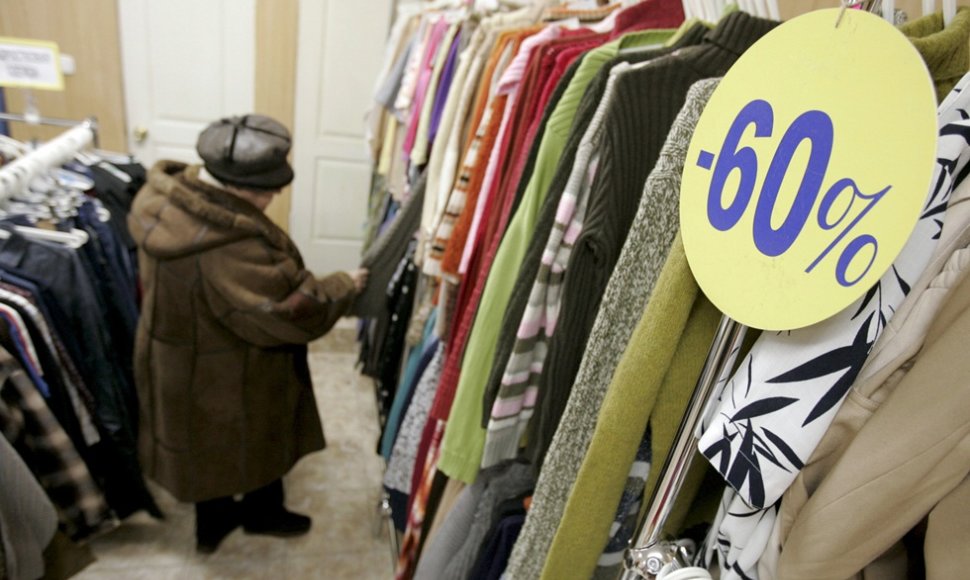Current-affairs broadcast Prime Time has investigated criminal schemes employed by criminal gangs to make good money from second-hand clothes donated by people to what they believe are charitable causes. Lithuanians, too, participate in the scheme of collecting truck-loads of used clothes and taking them to sell in Eastern Europe.
The Irish charity sector generates almost 6 billion euros in revenue, according to Prime Time presenter Paul Maguire, so no wonder that such a profitable and under-regulated business attracts people who are not motivated by charity.
Each week, ordinary Irishmen receive piles of leaflets and stickers through their letterboxes, asking them to donate used clothes to various charity causes. Some of the stickers bear logos of established charity organizations. However, as the TV investigators make plain, that does not mean that they are the ones behind the collections and that the donations do in fact go to those in need.
"They will drop a leaflet on day one, they will come back and collect donations," Paul Hughes of the Irish Charity Shops Association tells the broadcast. "They will do the same with a different leaflet on day two and so on. That's how they operate the system. They all have mobile phones, none of which are ever answered, none of them will have addresses, so you cannot contact them."
Because of a somewhat antiquated legal base, Ireland does not have a centralized database where people could check whether the organization named on the leaflet does in fact collect donations in their neighbourhood.
Prime Time investigators have followed several vans one early morning driving around and distributing stickers, then coming back to collect donations left by people.
One of the vans led them to a warehouse in Dublin, where Lithuanian Valdas D is renting several containers. He told the undercover reporters that competition between different gangs for the lavish donated second-hand clothing sector was particularly fierce and that competitors might even set each other's vans on fire.
For 6.5 euros, the investigators purchased a pack of 500 stickers from Valdas to carry out the scheme themselves. According to Prime Time, there are different leaflets for each day of the week, bearing different organization names, but the same contact phone number. Calls to it, however, are instantly forwarded to voice mail.
One week later, the reporters came back to Valdas' warehouse and brought bags with clothes allegedly donated by gullible people. The spoils were meticulously recorded, sorted out, some items even rejected. "We don't take pillows," the Lithuanian explained. He paid the reporters 107 euros for 107 kilos of second-hand clothes. No questions asked.
When Prime Time investigators came back with cameras, introduced themselves, and asked for comment, Valdas refused to talk. He later sent a statement saying he was running a legitimate business: "I buy used clothing from third parties. The stickers are clear as to what will happen to the used clothes and, contrary to what you are stating, make no claim as regards helping charitable causes."
As barrister Paul Anthony McDermott tells the broadcast, however, even though the leaflets do not indeed use the word "charity," they make people believe that the clothes they donate will be used to help single mothers, orphans, or other disadvantaged groups. Therefore collecting clothes and lying about what they will be used for does in fact constitute stealing.
According to the broadcast, the collected items are then loaded onto trucks and transported to shops in Lithuania, Latvia, Poland, and other eastern EU countries where they fetch a much better price than they would in Ireland.












